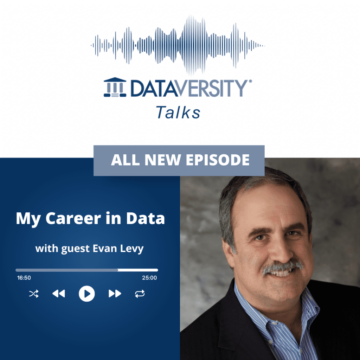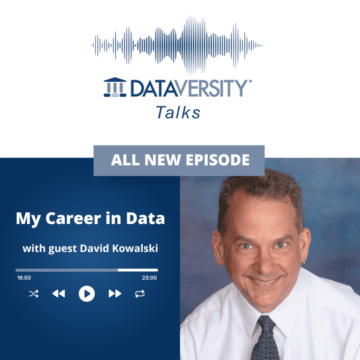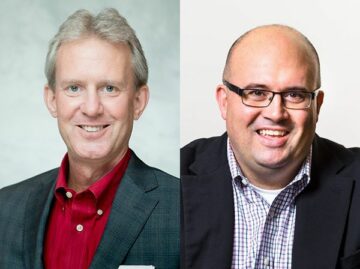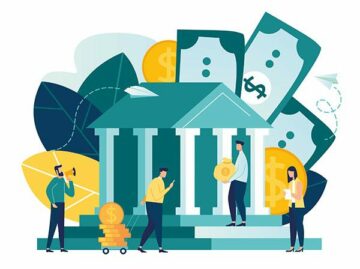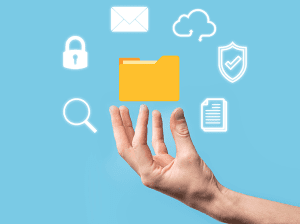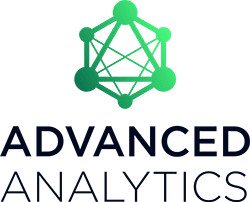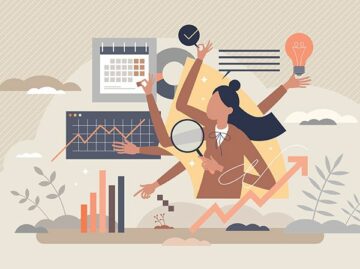Hello! I’m Mark Horseman, and welcome to The Cool Kids Corner. This is my monthly check-in to share with you the people and ideas I encounter as a data evangelist with DATAVERSITY. (Last month, we discussed the importance of communication.) This month, we’re talking about neurodiversity in your data team. The term neurodiversity was first used by Judy Singer in 1998. In the article linked, the author explains that it is not a medical term, but rather a way to describe folks outside of using terms like “normal” or “abnormal”; there is no real definition of “normal” when discussing how the brain works. This gives us “neurodiverse” and “neurotypical,” with the latter describing people who aren’t neurodivergent. Today, we’ll be talking about how neurodivergent team members can be a superpower for your Data Governance initiative and ultimately, we’ll see what the cool kids are saying.
As we gain experience and tenure in our careers, some of us are blessed with an opportunity to become team leaders or managers. This blessing carries a huge weight of responsibility, as there are now other people in your charge that you have a duty to support, mentor, and grow. You also have a duty to challenge yourself to grow, adapt, and meet the ever-changing needs of the organization your team serves. In Data Governance, the challenge of communicating and collaborating with wildly different business units that are accountable for wildly different data assets requires a team that can think, behave, and adapt in different ways.


When I became a team leader, I quickly became aware of the different styles, strengths, and weaknesses of my team members. Layered on with my own neurodiversity, it quickly became apparent that certain demands on my team were best led by specific team members. Even more so, the team functioned best when we all recognized one another’s strengths as related to those demands.
Moving on in my career, I was challenged to start a brand-new team at a new organization (along with starting a brand-new Data Governance initiative). It was in this role, when I hired my first team member for my new team, that I knew I had to re-create what I had been blessed with before. I made it my goal to hire someone who thought, operated, behaved, and engaged differently than me. I’ve been mindful of this ever since and have always managed to build effective teams as a result.
Recently, I was able to discuss this experience with a long-time friend, Gwen Thomas, who is this month’s featured Cool Kid. Gwen is the creator of the Data Governance Framework at the Data Governance Institute, which is celebrating its 20th birthday this month. Gwen, and her work in the space, were a huge inspiration for me early in my career, so I always hold any conversations we have in high regard.
In discussing this topic with Gwen, she said she started openly identifying as self-diagnosed ADHD and autistic, in an attempt to destigmatize neurodiversity. She also said:
“My special interest in Data Governance is how we make sense of complex disciplines such as ours, and my second interest is the human side of it, leaving deep dives into technology to others. That is how I now think of myself – someone who looks at it from a systemic perspective (including all the aspects that need to be addressed) while also doing a deeper dive of the human side. Are we communicating value? Are we composing a team that has the right skillsets for all the aspects of the program we’re sustaining?”
Digging into this topic further, we crafted a communication strategy for our supervisors and team members that focused on the following:
- How best to use me in Your team: A brief description on our personal strengths and how our neurodivergence can be used as a “secret weapon,” going into some detail on what skills we excel at and what our brains manage very well.
- On the flip side: Situations where we don’t function as well, suggestions as to what environments, tasks, and scenarios that challenge us more than a neurotypical person.
- Personal style: Particular points about how we work and engage in social settings that may benefit our team members and improve collaboration.
We also discussed being able to recognize our own neurodiversity. Here is a link to a site with a couple of tests that seem fair, but like any internet test, don’t use this result on its own and seek professional guidance as needed.
Check out what Gwen Thomas is up to:
Remember that you can meet and join Cool Kids like Gwen Thomas at DATAVERSITY events (use code COOLKIDS to save 15%):
Want to become one of the Cool Kids? All you need to do is share your ideas with the community! To be active in the community, come to DATAVERSITY webinars, participate in events, and network with like-minded colleagues.
Next month, we’ll be diving into ethics and equity in data – getting into the interplay between privacy and accessibility.
- SEO Powered Content & PR Distribution. Get Amplified Today.
- PlatoData.Network Vertical Generative Ai. Empower Yourself. Access Here.
- PlatoAiStream. Web3 Intelligence. Knowledge Amplified. Access Here.
- PlatoESG. Carbon, CleanTech, Energy, Environment, Solar, Waste Management. Access Here.
- PlatoHealth. Biotech and Clinical Trials Intelligence. Access Here.
- Source: https://www.dataversity.net/the-cool-kids-corner-neurodiversity-in-your-team/
- :has
- :is
- :not
- :where
- $UP
- 15%
- 1998
- 20th
- a
- Able
- About
- accessibility
- accountable
- active
- Ad
- adapt
- addressed
- ADHD
- All
- along
- also
- always
- an
- and
- any
- apparent
- ARE
- article
- AS
- aspects
- Assets
- At
- attempt
- author
- Autistic
- aware
- BE
- became
- become
- been
- before
- behave
- being
- benefit
- BEST
- between
- blessed
- blessing
- Brain
- brains
- build
- business
- but
- by
- CAN
- Career
- careers
- Celebrating
- certain
- challenge
- challenged
- charge
- CO
- code
- collaborating
- collaboration
- colleagues
- come
- communicating
- Communication
- community
- complex
- conversations
- Cool
- Corner
- Couple
- crafted
- creator
- data
- DATAVERSITY
- deep
- deeper
- definition
- demands
- describe
- describing
- description
- detail
- different
- differently
- disciplines
- discuss
- discussed
- discussing
- dive
- diving
- DM
- do
- doing
- Dont
- Early
- Effective
- encounter
- engage
- engaged
- environments
- equity
- Ether (ETH)
- ethics
- Evangelist
- Even
- Event
- events
- EVER
- ever-changing
- Excel
- experience
- Explains
- fair
- featured
- First
- Flip
- focused
- following
- For
- Framework
- friend
- from
- function
- further
- Gain
- getting
- gives
- goal
- going
- governance
- Grow
- guidance
- had
- Have
- her
- High
- hire
- hold
- How
- How We Work
- HTTPS
- huge
- human
- i
- ideas
- identifying
- importance
- improve
- in
- Including
- Initiative
- Inspiration
- interest
- Internet
- into
- IT
- ITS
- join
- kids
- knew
- latter
- layered
- leader
- leaders
- leaving
- Led
- like
- like-minded
- linked
- LOOKS
- made
- make
- manage
- managed
- Managers
- mark
- May..
- me
- medical
- Meet
- member
- Members
- mentor
- Month
- monthly
- more
- my
- myself
- Need
- needed
- needs
- network
- neurodiversity
- New
- Newsletter
- no
- now
- of
- on
- ONE
- openly
- operated
- Opportunity
- or
- organization
- Other
- Others
- our
- ours
- out
- outside
- own
- participate
- particular
- People
- person
- personal
- perspective
- plato
- Plato Data Intelligence
- PlatoData
- points
- privacy
- professional
- Program
- quickly
- rather
- real
- recognize
- recognized
- regard
- related
- requires
- responsibility
- result
- right
- Role
- Said
- Save
- saying
- scenarios
- Second
- see
- Seek
- seem
- sense
- serves
- settings
- Share
- she
- side
- since
- singer
- site
- skills
- So
- Social
- some
- Someone
- Space
- special
- specific
- start
- started
- Starting
- Strategy
- strengths
- style
- styles
- such
- superpower
- support
- systemic
- talking
- tasks
- team
- Team members
- teams
- Technology
- term
- terms
- test
- tests
- than
- that
- The
- There.
- Think
- this
- thomas
- those
- thought
- to
- today
- topic
- Ultimately
- units
- us
- use
- used
- using
- value
- very
- viewed
- was
- Way..
- ways
- we
- weaknesses
- Webinars
- weekly
- weight
- welcome
- WELL
- were
- What
- when
- which
- while
- WHO
- wildly
- with
- Work
- works
- you
- Your
- yourself
- zephyrnet



